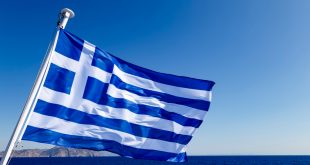Golden Race CEO Martin Wachter told delegates at the Betting on Football conference that “what works in real betting doesn’t always work in virtuals”, while more realistic odds and outcomes is more important to the customer than the best graphics.
Speaking on the ‘Let’s get digital: where now for virtual sports’ panel at last week’s event, he explained how Golden Race disrupted the virtual sports sector through a focus on low budget hardware, particularly for countries in Africa.
“I learned all my life that if you want to become big, you watch for the biggest and try to challenge him,” said Wachter.
“For me, Inspired was the biggest virtual sports company in the industry, so we thought how can we challenge this company? If we go on the visual side, it would be very difficult, but we thought we could compete in other areas.
“So, instead we focused more on the hardware and how it is used in the betting shop. It was clear that if you want to be successful in continents like Africa, you need to find a solution where you can run your business on a very low budget hardware.
“Whereas if you have the highest quality graphics, you are more limited as to where you can go with the hardware.”
Africa is a key justification of another of Golden Race’s key principles, which is to avoid stretching resources too far to cover too many sports, instead focusing on “where the most money is made” – namely soccer and in some cases dogs or horses.
Explaining how 85% of the Golden Race business comes from the company’s soccer portfolio – now headlined by 3D Virtual Football – Wachter referenced Nigeria, an African country in which the company takes 12/13 million tickets each day from retail outlets where there is often just one TV dedicated solely to virtual football.
Wachter added that Golden Race has adopted the ‘Beyond Virtuals’ strapline because virtual sports is not just having nice graphics, but more about the complete gaming experience.
He suggested that if graphics drive the product and the player base, Golden Race would not be here today, “competing in the top three for virtual sports betting providers”. However, to justify his openness to innovation, he did mention a big spend on mobile, to a point where the company is now taking 5 million tickets a day in Africa on mobile alone.
“We know that a lot of players skip the events,” he said. “So, really they just want to understand the following: Do I have a realistic chance to win? Does the way they do the odds make sense? And does the outcome make sense? It’s so important to have realistic odds that players understand, but you have to tune them a little bit.”









